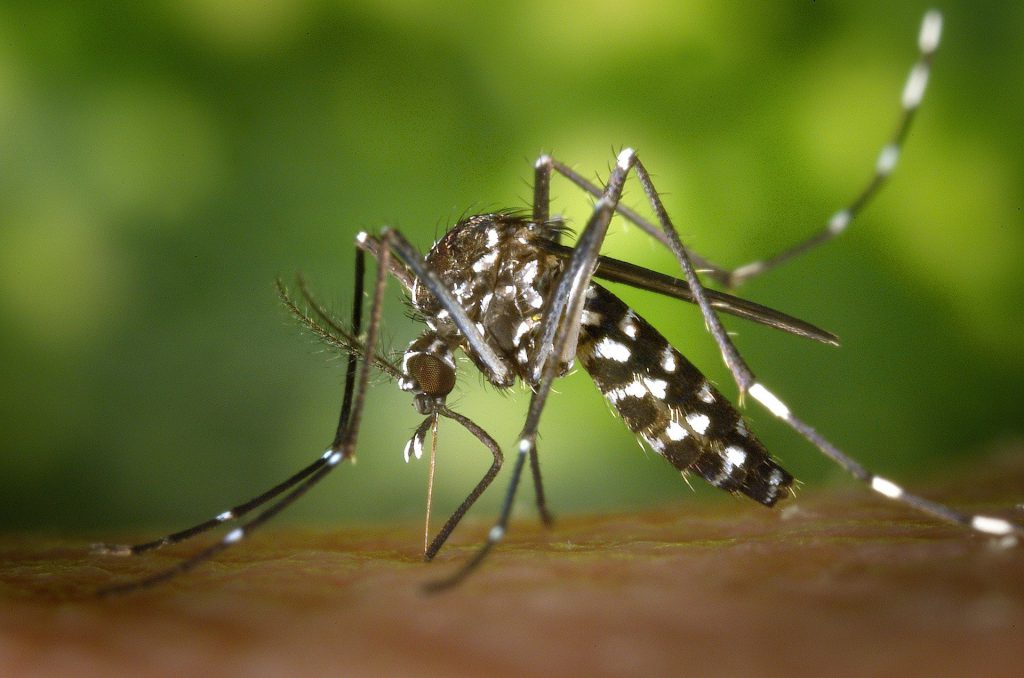Mosquitos in Milwaukee Test Positive for West Nile Virus
Health officials urge Wisconsinites to protect themselves from mosquito bites.
Health officials urge Wisconsinites to protect themselves from mosquito bites after a man from Barron County, north of Eau Claire, recently got sick from West Nile virus. The virus is spread by mosquitoes and can cause flu-like symptoms.
Officials also reported mosquitos in Milwaukee and Lafayette counties recently tested positive for West Nile virus.
The man, in his 60s, was the first case detected in Wisconsin this season. The state averages 18 cases per year, according to tracking by the Wisconsin Department of Health Services. Most people who are infected by the virus will not have symptoms, the department’s vectorborne disease epidemiologist Rebecca Osborn, told reporters Monday.
“Nearly 80 percent of people who are infected with West Nile virus will never know it,” she said. “Many of us are probably walking around already having been exposed.”
Still, it’s important for Wisconsinites to take precautions to protect themselves, she added. For people 60 and over or those immunocompromised, the illness caused by the virus can be severe and even fatal. Symptoms can include fever, rash, headache, body aches and in extreme cases convulsions and coma.
“If you do start to feel sick with flu-like symptoms in the middle of the summer, and you know you’ve been exposed to mosquitoes, it could be something like West Nile virus,” Osborn said. “So it’s important to talk to your doctor.”
The virus is typically transmitted from birds to mosquitoes, which can then bite and infect humans. It cannot be spread from human to human.
Higher mosquito activity
Wisconsin is coming out of a drought, which can mean more mosquitos, said PJ Liesch, an extension entomologist at the University of Wisconsin-Madison.
“We finally hit the point where no parts of Wisconsin are experiencing drought anymore. That’s a good thing for plants and crops, but … that can mean more mosquitoes out and about.” Liesch said. “So recent reports that I’ve had at the UW Insect Diagnostic Lab do suggest that there’s quite a bit of mosquito activity out there in Wisconsin, although it can vary from location to location.”
Not all mosquito bites come with a risk of West Nile virus, he added.
“In Wisconsin, we actually have around 55 different species of mosquitoes, and not all mosquitoes can transmit West Nile,” Liesch said.
“There are certain particular species that are the main drivers of this. And then there are other mosquitoes that may bite you, but they’re not carrying it. ”
Interestingly, researchers tend to see more cases during years with drier conditions, he said, because certain types of mosquitoes prefer it.
“If you keep getting regular rain, it can actually flush out some of the developing mosquito larvae,” Liesch said. “And so it’s a little bit counterintuitive, but when we have really rainy years, we tend to see lower West Nile activity versus some of our drier years.”
This year’s West Nile virus activity
So far, this year’s detection of West Nile virus appears to be average, DHS’ Osborn said.
“We do see an increase in West Nile virus transmission to humans begin this time of year and continuing into August and September,” she said. “Before it starts to decline a little bit in October and November and then stop altogether after the first hard frost.”
Health departments in some regions of the state collect mosquitos in traps and periodically test them for the virus. Recently, officials in Milwaukee and Lafayette counties collected mosquitoes that tested positive.
“That means that the virus is circulating in that area, and that people should be aware that it’s out there,” Osborn said.
How to prevent bites
While most mosquito bites won’t get people sick, it’s still good to prevent bites by using insect repellant, wearing long clothes and limiting outdoor events during the evening hours, Osborn said.
“Unfortunately, that can be when the mosquitoes that spread West Nile virus are most active,” she said.“We just try and encourage people to maybe reschedule some of those evening activities. If at all possible, do them at an earlier part of the day.”
Wisconsinites can also drain stagnant water from buckets and pools around their property where mosquitoes breed.
West Nile virus detected in Wisconsin mosquitos was originally published by Wisconsin Public Radio.
If you think stories like this are important, become a member of Urban Milwaukee and help support real, independent journalism. Plus you get some cool added benefits.






















